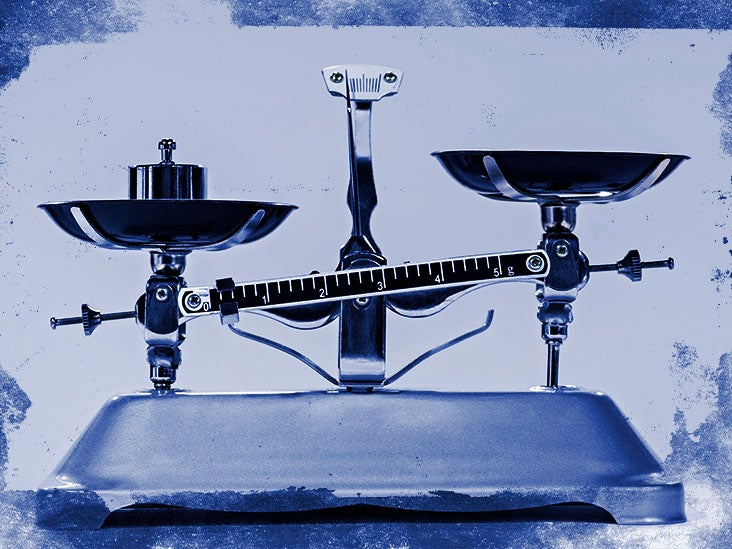- Homeopathy is a well-liked sort of choice medication.
- For numerous decades, homeopathic practitioners and scientists have debated no matter whether homeopathy is additional helpful than placebo.
- A current research investigated whether there is reporting bias in homeopathy research.
- The authors identified evidence of reporting bias, which they argue calls into issue publications demonstrating benefits of homeopathy over placebo.
The investigation, which seems in the journal BMJ Proof-Based Medication, contributes to the discussion surrounding homeopathy’s function in modern-day drugs.
Homeopathy is a style of substitute medication centered on the theory that a diluted form of a material that results in the indicators of an disease can also heal that ailment.
Specialists have named into question no matter whether the mechanisms guiding homeopathy have any basis in modern-day science.
Nonetheless, a 2017 meta-assessment done by Dr. Robert T. Mathie and colleagues discovered that homeopathic solutions confirmed a statistically major gain when compared with placebo.
In the existing research, the scientists wanted to see whether reporting bias may well be influencing the benefits of meta-analyses this kind of as this.
Content articles with constructive results are a lot more probable to be printed than neutral or damaging findings. This is known as reporting bias, or publication bias.
When much less content articles with adverse or unclear benefits are printed on a subject, the overall findings of meta-analyses may possibly appear additional favourable than they genuinely are due to the fact good trials are overrepresented.
To reply to this, public demo registries have been established up so that all trials can be registered. The 2008 Declaration of Helsinki declared the registration of trials an ethical obligation.
Nonetheless, when researchers are inspired to register trials, lots of registered trials are not printed.
The authors of the present analyze analyzed general public registration databases up to April 2019, and publication records till April 2021. They identified that because 2002, virtually 38{fe463f59fb70c5c01486843be1d66c13e664ed3ae921464fa884afebcc0ffe6c} of registered homeopathy trials have been not published.
They also observed that 53{fe463f59fb70c5c01486843be1d66c13e664ed3ae921464fa884afebcc0ffe6c} of released randomized controlled trials were being not registered. Also, trials were being additional commonly registered retrospectively, indicating that publication normally is dependent on the success.
In addition, the scientists located that 25{fe463f59fb70c5c01486843be1d66c13e664ed3ae921464fa884afebcc0ffe6c} of the revealed principal results ended up distinctive from the registered major results. The
Health-related Information Now spoke with Dr. Robert Emprechtinger from the Universität für Weiterbildung Krems in Austria, who is a co-writer of the research.
Dr. Emprechtinger stated that discrepancies among registered and posted main results “open the doorway for a practice referred to as selective publishing.”
“Study authors usually obtain a extensive vary of details. When the main outcomes are not outlined in progress, authors may be tempted to cherry-decide on their outcomes. This would direct to an exaggerated result estimate of the solutions in issue,” said Dr. Emprechtinger.
Dr. Emprechtinger and his colleagues think that their conclusions may possibly connect with into question the validity of meta-analyses this sort of as Dr. Mathie’s.
“Mathie et al. summarized the effects of personal studies in a meta-investigation. While the success achieved by this solution are usually far more credible than by individual scientific studies, it can lead to distorted estimates if there is only a distinct subset of research obtainable,” explained Dr. Emprechtinger.
Nevertheless, in a recent write-up, the Homeopathy Exploration Institute states that the conclusions of Dr. Emprechtinger and his colleagues display that “the homeopathy research sector seems to be out-accomplishing common medication in regard to scientific and ethical criteria, with reduce stages of reporting bias.”
In both situation, Dr. Emprechtinger reported that to lessen concerns of bias “it is critical that journals adhere to the Intercontinental Committee of Health care Journal Editors plan, which states that only results of clinical trials which have been prospectively recorded ought to be revealed in a journal.”
“Journals which publish complementary and option medication research need to end [the publication of] unregistered trials. Exploration companies will need to block investigators who do not sign-up and publish their trials from any potential funding,” argued Dr. Emprechtinger.
